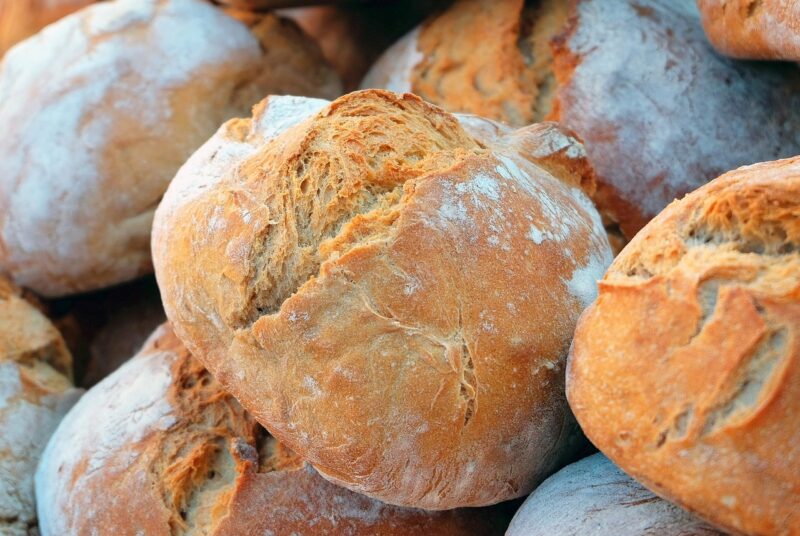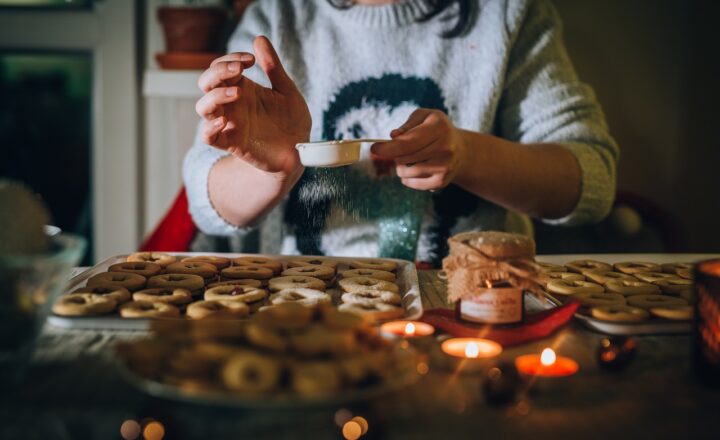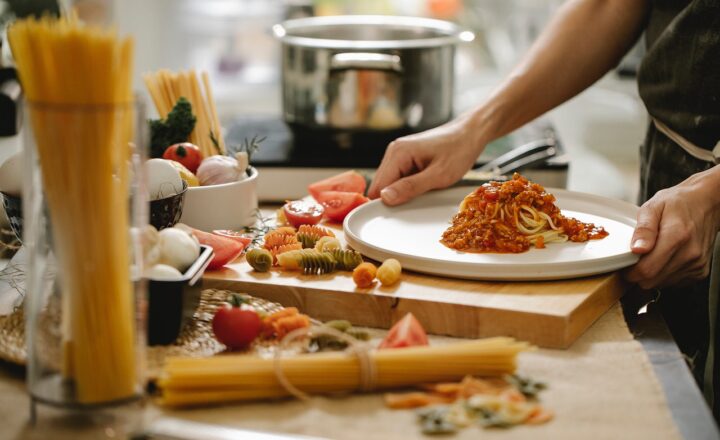The Art of Bread Making: Why Baking Your Own Bread Is Both Fun and Rewarding
November 14, 2024

Bread is often referred to as the staff of life, a staple food that has sustained civilizations for thousands of years. Yet, despite its humble roots, the art of bread making can evolve into a form of culinary magic, offering endless possibilities for creativity in flavor, texture, and style.
In today’s fast-paced world, where bread is readily available in countless forms at every grocery store, many people have forgotten the joys and benefits of baking their own bread. This article will delve into why baking your own bread is not just a rewarding experience, but also a fun one that can enhance your culinary skills and improve your overall well-being.
1. The Joy of Creating Something from Scratch
There’s something undeniably satisfying about creating something with your own hands. Baking bread offers a unique opportunity to experience the entire process—from mixing ingredients to shaping the dough, and finally pulling that golden loaf out of the oven.
Bread making allows you to witness the transformation of simple ingredients—flour, water, yeast, and salt—into a warm, aromatic loaf. The kneading action engages your senses and serves as a form of therapeutic exercise, allowing you to relieve stress and focus on the present.
#### Benefits of Baking Your Own Bread:
– **Mindfulness:** The process can serve as a form of meditation, helping you to be present and aware of the process.
– **Satisfaction:** There’s immense pride in serving your own homemade bread to family and friends.
– **Creativity:** You can experiment with various ingredients to create a loaf that suits your taste, from adding herbs to incorporating whole grains or seeds.
2. Health Benefits of Home-Baked Bread
In a world where commercial bread often contains preservatives and additives, baking your own bread provides complete control over what goes into it. You can opt for organic flour, limit sugar, and avoid preservatives usually present in store-bought options.
#### Healthier Bread Options:
– **Whole Grains:** You can use whole grain flours, which offer more nutrients and fiber than refined white flour.
– **Reduced Additives:** Homemade bread can be free of unnecessary chemicals and preservatives.
– **Custom Nutrition:** Add ingredients like seeds, nuts, or dried fruits for enhanced nutrition and flavor diversity.
By choosing to bake at home, you generally indulge in a healthier product that not only tastes better but nourishes your body more effectively.
3. Economical and Sustainable Choice
Baking your own bread can also be a cost-effective alternative. With just a few basic ingredients, you can create several loaves of bread that are often cheaper than their supermarket counterparts. Additionally, homemade bread waste is minimal as you can make smaller batches or explore different recipes suitable for the ingredients you have at home.
#### Economic Benefits of Baking Bread:
– **Cost Efficiency:** Ingredients are generally less expensive in bulk compared to buying pre-packaged bread.
– **Less Waste:** You can customize your loaves to your household’s consumption rates, which reduces food waste.
– **Freshness:** You can bake just what you need, ensuring your bread is always fresh.
By taking a simple step towards baking at home, not only can you save money, but you also contribute to a more sustainable lifestyle.
4. The Social Element of Bread Baking
Baking can often be a solitary activity, but it doesn’t have to be. Inviting family or friends into your kitchen can transform the experience into a delightful social event. Teaching others how to bake can deepen relationships and create lasting memories.
#### Social Benefits:
– **Family Bonding:** Engaging kids in the baking process can be educational and can strengthen family ties.
– **Community Connection:** Sharing your homemade bread with neighbors can foster community connection and friendships.
– **Cultural Tradition:** Many cultures have bread-making traditions that can be passed down, adding familial warmth and heritage to the experience.
Baking bread together can lead to shared laughter, storytelling, and, ultimately, shared meals that enhance your bonds with others.
5. Mastering Techniques and Skills
Baking bread is an art that combines both science and culinary skill. Each loaf teaches you something new, whether it’s understanding yeast behavior, mastering kneading techniques, or balancing ingredients. The skills acquired through bread-making can translate to other areas of cooking and baking as well.
#### Key Skills Developed:
– **Kneading and Shaping:** Learning proper techniques enhances your overall baking competency.
– **Ingredient Knowledge:** You’ll gain a deeper understanding of how ingredients behave and work together.
– **Problem-Solving:** Each loaf presents unique challenges, encouraging critical thinking and adaptability in the kitchen.
As you become more experienced in bread making, you develop confidence as a cook, opening the door to exploring more complex baking and culinary endeavors.
6. Different Types of Bread to Explore
Once you’ve mastered the basics, the world of bread making expands dramatically. From classic white loaves to artisan sourdough, there is a type of bread to satisfy every palate. Experimenting with different recipes can redefine your understanding of what bread can be.
#### Varieties to Try:
– **Sourdough:** A tangy, complex loaf that often uses wild yeast cultures for fermentation.
– **Focaccia:** An Italian flatbread that is perfect for soaking up oils and herbs.
– **Baguette:** A French classic that’s crunchy on the outside and soft within, requiring specific techniques for authenticity.
By exploring various types of bread, you not only continue to learn and grow your skills but also discover new favorites to enjoy with meals.
Conclusion
The art of bread making is a rewarding hobby that offers numerous benefits, from fostering creativity to providing measurable health advantages and a chance to build relationships. The simple act of combining flour, water, yeast, and salt can result in a nourishing product that warms hearts and feeds families. Whether you’re a seasoned baker or just beginning, the joy of creating your own bread is a fulfilling journey worth embracing.
So, roll up your sleeves, dust off your measuring cups, and get ready to discover the marvelous world of home-baked bread. With every loaf you create, you’ll find not just deliciousness but also a deep satisfaction in mastering a time-honored craft.







